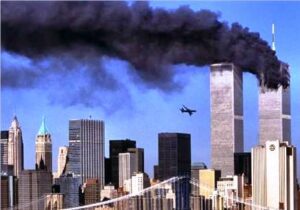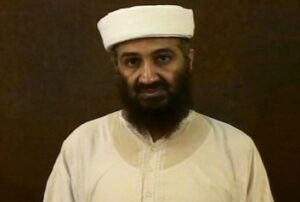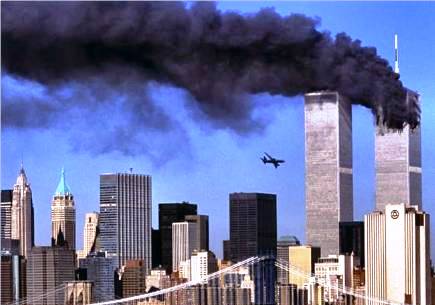
The date 11th September, 2001 – or 9/11 as it has simply become known – is one that will be forever etched in the minds of those who were alive to witness it, be it in person, on television, or even just reading about it.
So historic, so memorable and so important, it is an event that, just like the day John F Kennedy was assassinated or Elvis Presley died, prompts the question: “Where were you when it happened?”
For many it was a day of profound shock and sadness. For some it was a day of celebration, when America’s vulnerabilities were exposed for the entire globe to see in the most appalling and brutal manner.
There’s little doubt 9/11 changed the world we live in today.
In the most practical terms we experience this change every time we board an aircraft and are subjected to a range of security measures previously unheard of. From taking your shoes off to having your liquids displayed in clear plastic bags, they are a minor inconvenience, but a significant change nonetheless.
Almost daily, we hear politicians talk of terror threats and debate how to deal with the growing threat of Muslim extremism, be it homegrown in the UK or from abroad, and fear has become a part of modern life.
New phrases have entered our lexicon, such as the ‘War on Terror’, and we have waged wars that might never have been, in Afghanistan and Iraq.
Al Qaeda and Osama Bin Laden have become household names. Bin Laden’s death this May was a global event in itself, on virtually every front page and TV news bulletin.
His demise was celebrated by many, mourned by some, and all because he masterminded the 9/11 terror attacks.
Four planes were hijacked, then two were deliberately crashed into New York’s World Trade Center, one into the Pentagon building in Washington, and another was brought down in a field in Pennsylvania after some passengers fought back.
In human terms, the loss of life was significant, not only on the day – exactly 2,996 including the 19 hijackers – but in the years that followed as a direct result of it.
The two wars in Afghanistan and Iraq remain dominant features of the current news agenda. While Afghanistan is almost directly linked to 9/11 and is still going on to this day, the Iraq conflict had no comparative link, but there’s no doubt its eventual invasion on the orders of President George W Bush in March 2003 was hastened by the tragic events in the United States 19 months beforehand.

One recent estimate puts it that at least 919,967 people, including soldiers and civilians, have been killed in Afghanistan and Iraq since the US and coalition invasions.
Indirectly, one can also point to the soldiers who came home from those wars and never recovered from the post-traumatic stress they caused, with some taking their own lives.
Interestingly, one recent study even suggested that an extra 1,595 Americans died in car accidents in the year after 11th September because of the fear of flying it created.
Economically, it is difficult to assess with any certainty what impact there was long-term. But who knows what the trillions of dollars spent on the two wars might have done to avert the global financial crisis in the latter part of the last decade?
And in the UK, would the 7/7 terror attacks have taken place in London in 2005? Politically, how might the premiership of Tony Blair been different had he not decided to support the invasion of Iraq in 2003? Would the Labour party still be in power, and what effect might that have had on the country as it stands today?
Similarly, in the US might we even have heard of Barack Obama? An Illinois state senator in September 2001, now the President of the United States, he is attempting to extricate his country from Afghanistan, and his decisiveness in ordering the killing of Bin Laden saw his lagging poll numbers jump, albeit briefly.
Just some of the questions to consider, just some of the changes that have happened in the world, all since and all because of that one morning in September in which 19 men and four commercial planes changed the course of history, forever.
The not-for-profit international organisation Rights and Humanity will hold a multi-faith event at Liverpool Cathedral on Sunday entitled ‘Think, Unite, Act’ to commemorate the tenth anniversary of 9/11. The event is free, open to the public and begins at 5.30pm. It is supported by Liverpool City Council and the Merseyside Fire & Rescue Service. To guarantee a place, email [email protected] or call 0151 236 2426.

